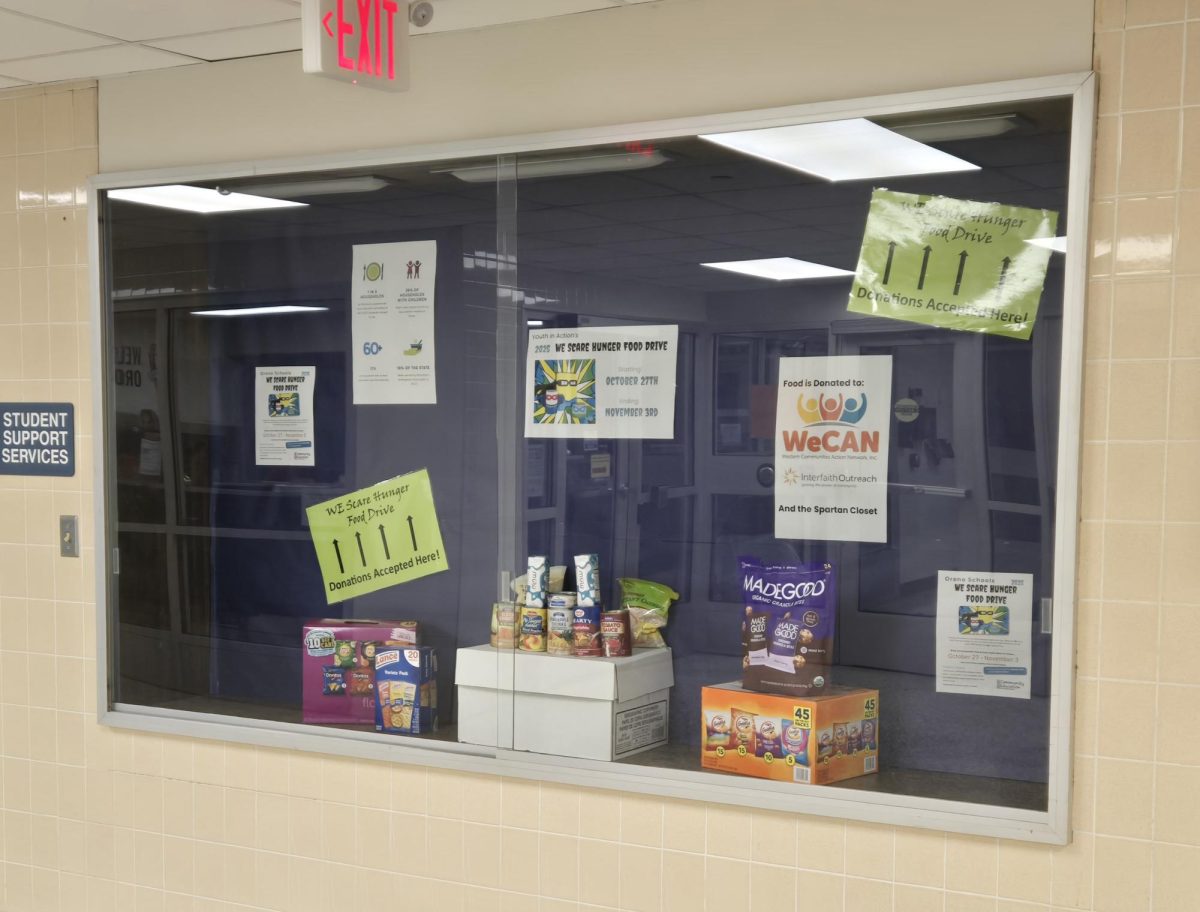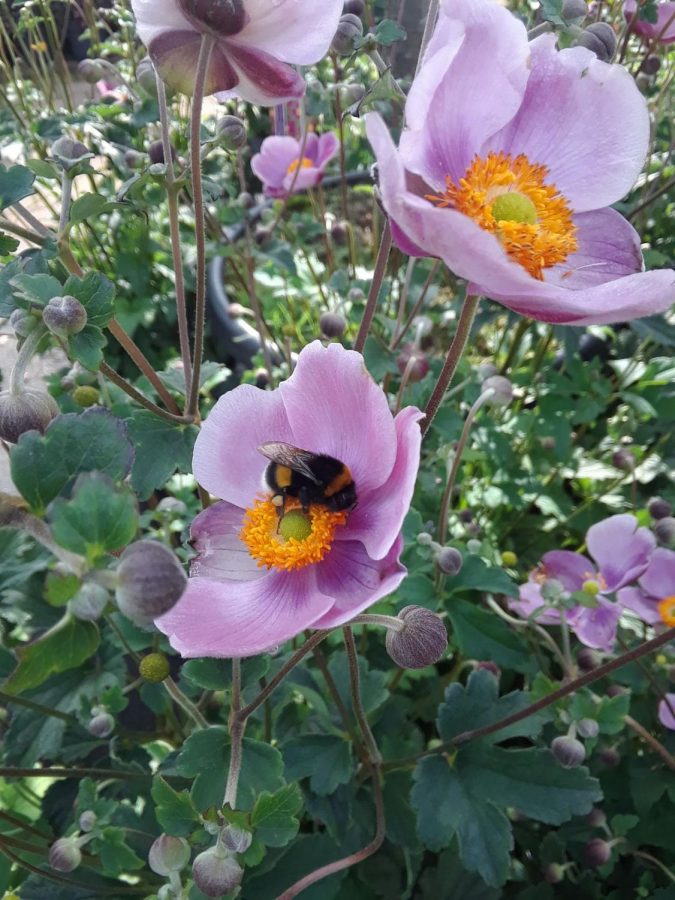How Nature Can Positively Affect Mental Health
A bumblebee continues its busy work day while bringing joy to those that witness it.
You’ve likely seen the phrase ‘Go outside, and maybe you’ll calm down,’ but just how true is it? Besides being aesthetically pleasing to the eye, there’s actually a significant amount of scientific evidence backing up the idea that being around nature can seriously help your mental health. Especially at times like these, it’s crucial to keep up with your mental health in whatever way you can.
“I think it allows people to dissipate some of their negative energy and absorb the better energy of the plants,” senior Josh Pusch said when asked about how gardening can help your mental health.
“[Gardening] gives you a little freedom and an outlook and it keeps you going,” said Mikayla Burns, one of the cofounders of Garden Club at Orono. Essentially, it seems that being able to focus on something that takes very little effort but gives you such an impressive result can help keep you positive, and remind you that things get better.
“Having something like gardening, having a plant to care for, to nurture, is one of the main reasons to get into gardening. It’s a little ounce of joy,” English teacher Kyle Ann Herring.
According to Charles R. Hall and Madeline W. Dickson, beauty of a natural variety can help degrees stress and anxiety and help boost positive emotions.
“[Having plants] makes the room look better, which makes you feel better,” senior Ronan Banavige said.
“[House plants] bring a pop of color, especially right now with winter when seasonal depression hits hard…it brings
that extra added color that we normally don’t get, which is good for the mind in many ways,” Burns said.
According to Daniel K. Brown, Jo L. Barton and Valerie F. Gladwell, seeing nature significantly reduces the time required to calm down after a stressor. Seeing plants before performing a stressful task was also extremely effective in decreasing the stress felt during the task itself.
The pure aesthetic is not the only thing that helps your brain. If that were true, images of nature would have the same effect on you as real nature, as Anette Kjellgren and Hanne Buhrkall proved in their study, that simply isn’t true.
While being in ‘real’ nature awoke the senses and caused them to feel more in the moment, feel at one with nature, helped them feel better about their lives and increased their energy and feelings of peace, images of nature did not. While they may have caused a small amount of “positive emotions,” they also caused restlessness, anxiety, lack of concentration, feeling like they were separate from nature and a “longing to be in ‘real’ nature.”
There is also significant evidence that exposure to plants can decrease the frequency of physical illness. According to the paper written by Lucy E. Keniger, Kevin J. Gaston, Katherine N. Irvine, and Richard A. Fuller, (a group consisting of a PhD candidate, two professors, and a doctor), the presence of plants in an office space decreased the frequency of illness and made workers feel healthier. They further said that numerous studies had shown having plants in offices reduced dry skin, hoarse throats, coughing and fatigue.
Having plants in rooms with patients in hospitals decreased the amount of time necessary to heal by a significant amount, according to the article “title of article”. Not only does exposure to plants speed up the healing process, but the act of gardening and caring for plants also significantly decreased the time spent healing from injury and surgery.
When asked how to best keep houseplants alive so you can continue reaping the benefit, Pusch brought in the idea that like many things in life, the health status of a plant is mostly out of your hands, and you need to believe it will work out.
“You have to trust that it’s doing what it’s supposed to, and keep being patient,” Pusch said.
There is a great deal you can get out of gardening for so little. From the mental health benefits to the tangible items that are flowers and vegetables, there is a huge variety of positives. “You can put so little effort and money into gardening, but still reap a huge reward. Whether that is a tiny cactus you barely need to water once a month, or a giant vegetable garden that can keep your whole family fed,” Banavige said.

















































